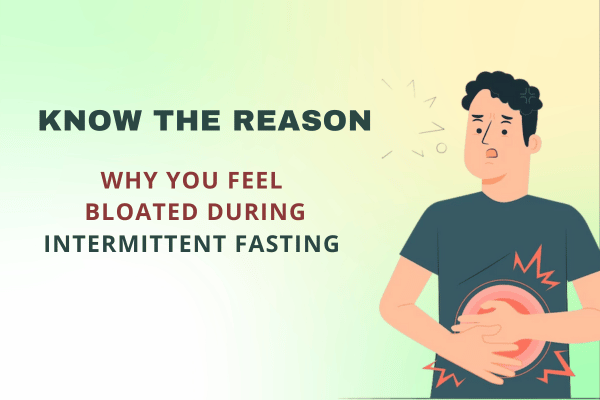Why You Feel Bloated During Intermittent Fasting
Intermittent fasting has gained significant popularity in recent years, not only for its potential weight loss benefits but also for its purported health advantages. However, some individuals may experience bloating during intermittent fasting, which can be uncomfortable and concerning. In this comprehensive guide, we delve into the reasons behind bloating during intermittent fasting and offer practical solutions to alleviate this issue.
What is Intermittent Fasting?
Intermittent fasting is an eating pattern that cycles between periods of fasting and eating. Unlike traditional diets that focus on what foods to eat, intermittent fasting primarily dictates when to eat. Common intermittent fasting methods include the 16/8 method, where one fasts for 16 hours and eats within an 8-hour window, and the 5:2 method, which involves consuming a limited number of calories for two non-consecutive days of the week.
The Science Behind Intermittent Fasting
Research suggests that intermittent fasting can lead to various health benefits, including weight loss, improved metabolic health, and enhanced cellular repair processes. During fasting periods, the body shifts its energy source from glucose to stored fat, promoting fat burning and weight loss. Additionally, fasting triggers autophagy, a cellular process that removes damaged cells and promotes regeneration, potentially reducing the risk of chronic diseases.
Common Causes of Bloating During Intermittent Fasting
While intermittent fasting can offer numerous health benefits, some individuals may experience bloating, particularly during the fasting period. Several factors contribute to this uncomfortable sensation:
1. Dehydration
During fasting periods, it’s essential to stay hydrated to support bodily functions and prevent dehydration-related symptoms, including bloating. Inadequate water intake can lead to electrolyte imbalances and fluid retention, resulting in bloating and discomfort.
2. Rapid Changes in Eating Patterns
Switching to an intermittent fasting regimen may cause abrupt changes in eating patterns, such as consuming larger meals during the eating window or skipping meals altogether. These sudden shifts can disrupt the digestive process and lead to bloating as the body adjusts to the new eating schedule.
3. Increased Fiber Intake
Some individuals may opt for high-fiber foods during their eating window to promote satiety and support digestive health. While fiber is beneficial for regularity, consuming excessive amounts of fiber-rich foods, such as legumes, fruits, and vegetables, can lead to bloating and gas production, especially if the digestive system is not accustomed to such a dietary change.
4. Swallowing Air
During intermittent fasting, individuals may experience increased hunger and thirst, leading them to drink fluids or chew gum more frequently to suppress appetite. However, these behaviors can inadvertently lead to the ingestion of air, resulting in bloating and gas buildup in the digestive tract.
Strategies to Minimize Bloating During Intermittent Fasting
If you’re experiencing bloating while practicing intermittent fasting, several strategies can help alleviate discomfort and promote digestive wellness:
1. Stay Hydrated
Ensure adequate hydration by drinking water throughout the fasting and eating windows. Opt for hydrating beverages such as water, herbal teas, and electrolyte-rich drinks to support digestion and prevent bloating.
2. Gradually Transition to Intermittent Fasting
If you’re new to intermittent fasting, gradually transition into your chosen fasting method to allow your body time to adapt. Start with shorter fasting windows and gradually extend the duration as your body adjusts to the new eating pattern.
3. Monitor Fiber Intake
Be mindful of your fiber intake and aim for a balanced diet that includes a variety of fiber sources. Incorporate fiber-rich foods gradually and pay attention to how your body responds to different types and amounts of fiber.
4. Minimize Air Ingestion
Avoid habits that may lead to excessive air ingestion, such as chewing gum, drinking carbonated beverages, or consuming meals too quickly. Practice mindful eating techniques, such as chewing food thoroughly and eating in a relaxed environment, to minimize bloating.
Conclusion
While intermittent fasting offers numerous health benefits, bloating can be a common side effect for some individuals. By understanding the factors contributing to bloating during intermittent fasting and implementing practical strategies to alleviate discomfort, you can optimize your fasting experience and promote digestive wellness.











